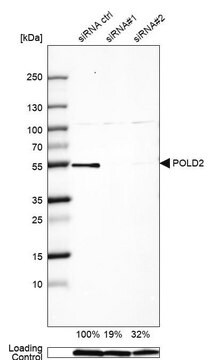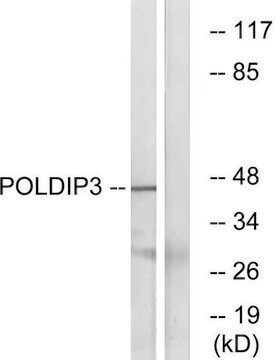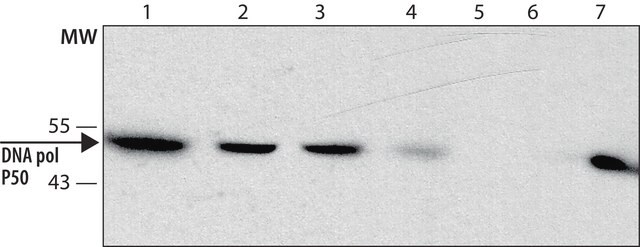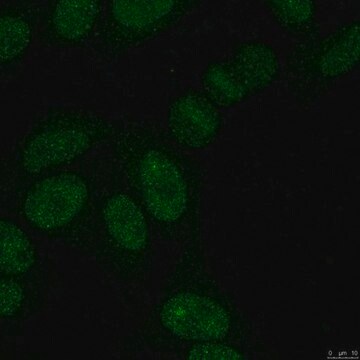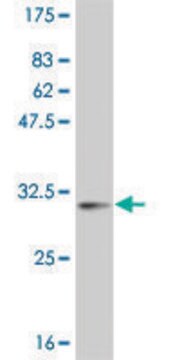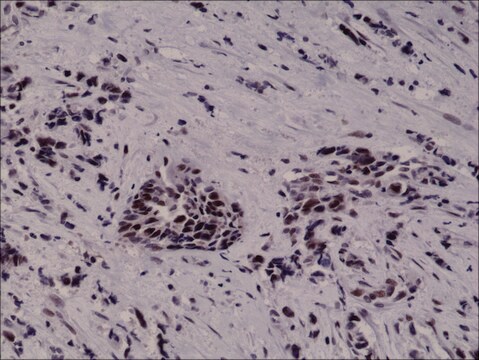SAB4200053
Anti-DNA polymerase δ p125 antibody, Rat monoclonal
clone PDG 5G1, purified from hybridoma cell culture
Sinónimos:
Anti-POLD1, Anti-Polymerase (DNA directed), delta 1, catalytic subunit 125kDa, Monoclonal Anti-DNA polymerase δ p125 antibody produced in rat
About This Item
Productos recomendados
origen biológico
rat
forma del anticuerpo
purified from hybridoma cell culture
tipo de anticuerpo
primary antibodies
clon
PDG 5G1, monoclonal
formulario
buffered aqueous solution
mol peso
antigen ~125 kDa
reactividad de especies
human, mouse, rat
envase
antibody small pack of 25 μL
técnicas
immunocytochemistry: suitable
immunoprecipitation (IP): suitable
western blot: 0.5-1.0 μg/mL using Jurkat cells extract
Nº de acceso UniProt
Condiciones de envío
dry ice
temp. de almacenamiento
−20°C
modificación del objetivo postraduccional
unmodified
Información sobre el gen
human ... POLD1(5424)
Descripción general
Inmunógeno
Aplicación
- immunoblotting
- immunoprecipitation
- immunocytochemistry
- co-immunoprecipitation
Acciones bioquímicas o fisiológicas
Forma física
Cláusula de descargo de responsabilidad
¿No encuentra el producto adecuado?
Pruebe nuestro Herramienta de selección de productos.
Código de clase de almacenamiento
10 - Combustible liquids
Punto de inflamabilidad (°F)
Not applicable
Punto de inflamabilidad (°C)
Not applicable
Certificados de análisis (COA)
Busque Certificados de análisis (COA) introduciendo el número de lote del producto. Los números de lote se encuentran en la etiqueta del producto después de las palabras «Lot» o «Batch»
¿Ya tiene este producto?
Encuentre la documentación para los productos que ha comprado recientemente en la Biblioteca de documentos.
Nuestro equipo de científicos tiene experiencia en todas las áreas de investigación: Ciencias de la vida, Ciencia de los materiales, Síntesis química, Cromatografía, Analítica y muchas otras.
Póngase en contacto con el Servicio técnico